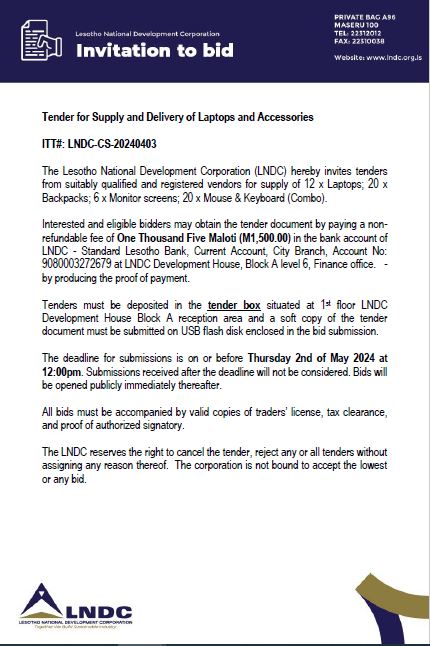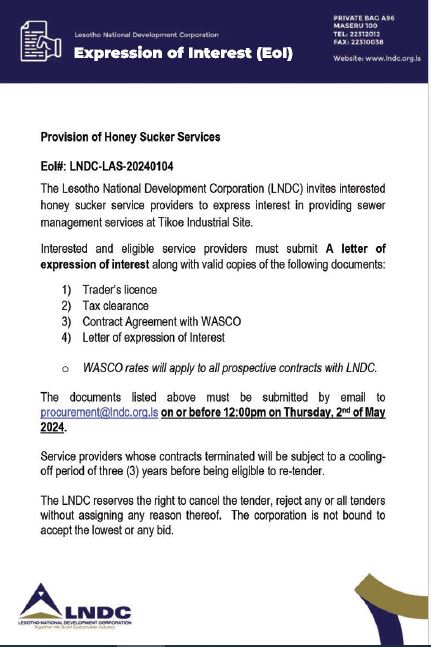Marcia Zali and Ntsoaki Motaung
“Resilient Health Systems for Africa: Re-envisioning the Future Nowâ€. This was the theme at this year’s 5th edition of the Africa Health Agenda International Conference (AHAIC2023) that was held in Kigali, Rwanda from Monday this week.
The three-day gathering of different stakeholders within the continent’s health sector was also set to hold discussions on the health challenges faced by the continent.
Speaking at the opening of the conference, the Acting Director at the Africa CDC (Centre for Disease Control), Dr Ahmed Ogwell Ouma said that the organisation’s core mandate was to improve the health and well-being of the people on the continent by 2063.
In its strategy, the Africa CDC wants to help countries strengthen their health systems so they can prevent, prepare and rapidly respond to disease threats.
Ouma also said that the continent’s health sectors needed to acknowledge that there was a climate change crisis in order for them to be better prepared for the effects it had on the sector. Adding that global warming and climate change contributed to some of the health emergencies and disease outbreaks that Africa had been facing.
“Not only can disasters such as flooding, drought or other extreme weather patterns have devastating effects on our socio-economic fabric, but these disasters also result in infrastructure damage, economic losses due to business disruption, malnutrition, interruption of education for children, and even poorer health outcomes due to disruptions in health servicesâ€, he said.
The Covid-19 pandemic and recent disease outbreaks were a direct impact of the failure to adequately invest in the public health sector. This, according to Ouma, also included poor investment in the health workforce, pandemic preparedness as well as response machinery.
“We are living through the consequences of a failure to adequately invest and prioritise public health needs in Africa – this is the very impetus for Africa CDC’s New Public Health Order guided by principles of local ownership, leadership, equity, innovation, and self-reliance,†Ouma explained.
Speaking to Newsday before the conference, Hajra Comfort Mukasa, the Programme Manager for Water, Sanitation and Hygiene/Non-Communicable Diseases/Climate Change at Amref Health Africa in Uganda, said the obvious indicators of climate change had made it important for it to be included in the agendas of various sectors including health.
According to her, things looked bleak for the continent as it had just come out of the Covid-19 pandemic which left an already ailing public health sector depleted. Africa also lacked the resources and early warning systems to adequately prepare for the rapidly changing weather patterns.
Mukasa suggested that while countries are dealing with competing priorities, they needed to leverage the existing skills and expertise that are available on the continent. This also included retaining the health workforce that has been migrating for greener pastures in other parts of the world like Europe and North America.
“We have to optimise the resources that we have and think systematically. We need to think about turning disaster into opportunity and being able to thrive in the face of climate change.â€
Speaking about the AHAIC, Mukasa said she was looking forward to engaging with people from the grassroots and tapping into indigenous knowledge as well as looking at nature-based solutions for climate change.
Meanwhile, Sello Montši, a public health specialist from Lesotho said the country’s government needed to start taking climate change issues very seriously, especially looking at the health system.
Speaking in an interview with Newsday, he indicated that Lesotho’s health system is not resilient to climate change because there are no new systems in place to respond to it [climate change].
“The health system continues to function normally as it had done for the past couple of years. The country lacks appropriate infrastructure and there are no clear strategies towards resilience,†he said.
Montši stated that Lesotho’s health sector was not immune to the effects of climate change because the heatwaves, heavy rain storms, and recurrent snowfalls were making it difficult for Basotho to access health services. And the people from remote areas having to travel long distances to access health care was a hindrance to them accessing the services on time.
“Lesotho has to Invest in road infrastructure to make it easy for Basotho to access health services during emergencies as well as setting up emergency response facilities,†he said.
The specialist indicated that the health facilities’ infrastructure was limited and not equipped enough to address climate change challenges.
“For instance, when it is extremely cold, or hot, no cooling or heating systems for health care seekers in health facilities. Rooms are not adequate to accommodate all patients so additional emergency response health facilities and equipment would be of great importance as a response,†he explained.
He said the government should build capacity and ensure that public health professionals have access to appropriate meteorological information, and use it to manage climate-sensitive diseases using appropriate models and disseminate appropriate warning messages to the vulnerable public.
“The government should strengthen health education on precautions about possible infectious disease, preventive measures, disaster management precautions and sustainable food security. Normal seasons for ploughing have been affected either by heavy rainfalls or drought hence food security is affected. Malnutrition and other health conditions may be experienced as a result. Basotho should be alerted and listen to the experts’ guidance during this period,†he said.
To remain healthy during extremely hot weather conditions, Montsi advised Basotho to stay hydrated by drinking more water, avoid alcoholic and caffeinated drinks, reduce the consumption of foods high in protein such as red meats as they increase metabolic heat, eat fresh fruits and vegetables, monitor blood pressure to make sure it is within the normal range and take cold water baths before going to bed at night.





